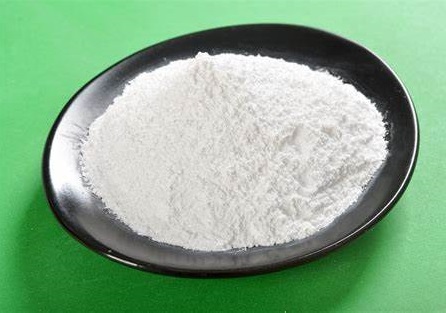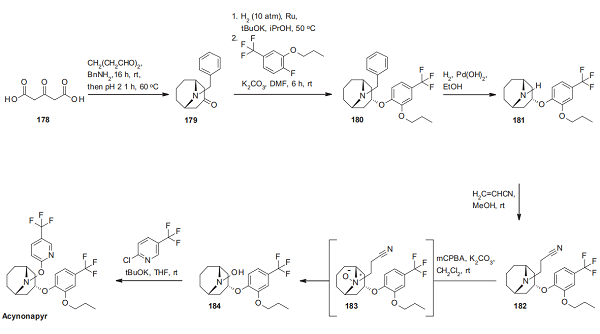N-Acetyl-L-tyrosine: Potential Health Benefits, Side Effects and Dosage Considerations
General Description
N-Acetyl-L-Tyrosine is a form of the amino acid L-tyrosine that may offer potential health benefits, particularly in cognitive enhancement and stress management. However, its safety profile is not well-established due to limited clinical data, and it may cause side effects such as headaches, irritability, and nausea. N-Acetyl-L-Tyrosine may also interact with certain medications, so consultation with a healthcare provider is essential before starting any regimen. Dosages for N-Acetyl-L-Tyrosine supplementation should be determined based on individual health conditions and factors, with clinical trials using high doses of L-tyrosine at 7 g daily for a 154-lbs person. While N-Acetyl-L-Tyrosine shows promise as a supplement, further research is needed to fully understand its effectiveness and potential health benefits.

Figure 1. N-Acetyl-L-tyrosine
Potential Health Benefits
N-Acetyl-L-Tyrosine is a form of the amino acid L-tyrosine that has shown potential health benefits, particularly in cognition, memory, and wakefulness. When ingested, N-Acetyl-L-Tyrosine partially converts into L-tyrosine, which plays a crucial role in increasing neurotransmitters such as dopamine, norepinephrine, and epinephrine. These neurotransmitters are essential for mental health, cognition, behavior, and stress response. Studies have indicated that L-tyrosine, and by association N-Acetyl-L-Tyrosine, may be effective in boosting cognition, alertness, and memory, especially in stressful and demanding situations like sleep deprivation, multitasking, military training, and exposure to cold weather. These conditions deplete catecholamines in the body, making the supplementation of tyrosine beneficial for maintaining optimal physical and cognitive performance. While users have reported similar benefits from N-Acetyl-L-Tyrosine as from L-tyrosine, it is important to note that clinical evidence supporting these claims is currently lacking. Additionally, there is insufficient evidence to support the use of N-Acetyl-L-Tyrosine or L-tyrosine for certain conditions, although animal studies and low-quality clinical trials have hinted at potential benefits such as increased thyroid hormones, assistance with heroin addiction and withdrawal, metabolism acceleration, and mood improvement. In conclusion, N-Acetyl-L-Tyrosine shows promise as a supplement for cognitive enhancement and stress management, but further research is needed to fully understand its effectiveness and potential health benefits. 1
Side Effects
N-Acetyl-L-Tyrosine is a supplement that may cause certain side effects and interactions that need to be considered. While N-Acetyl-L-Tyrosine is generally believed to be safe for oral consumption, its safety profile is not well-established due to limited clinical data. Some common side effects associated with L-tyrosine, which N-Acetyl-L-Tyrosine gets transformed into in the body, include headaches, irritability, and nausea. It is important to note that high blood levels of tyrosine, as observed in a study with Chinese participants, were linked to an increased risk of diabetes type 2, especially in individuals with low HDL cholesterol levels. Additionally, excessive dietary tyrosine intake has been shown to elevate cholesterol levels in animal studies. N-Acetyl-L-Tyrosine may also interact with certain medications, such as L-DOPA and thyroid medications, which can have potentially dangerous consequences. Individuals considering N-Acetyl-L-Tyrosine supplementation should consult their healthcare provider to assess potential risks based on their health status and medication regimen, especially if they are elderly or have specific health conditions like Parkinson's disease. 2
Dosage Considerations
When considering the dosage of N-Acetyl-L-Tyrosine supplementation, it is important to note that these supplements have not been FDA-approved for medical use. Therefore, it is crucial to consult with a healthcare provider before starting any NALT regimen. N-Acetyl-L-Tyrosine typically comes in 350 mg pills or bulk powders, with some product manufacturers suggesting doses ranging from 700-1000 mg. However, it is important to work with your doctor to determine the optimal dosage based on individual health conditions and factors. Clinical trials have used high doses of L-tyrosine, the compound N-Acetyl-L-Tyrosine converts to in the body, at 7 g daily for a 154-lbs (70-kg) person. For short-term nootropic effects, taking N-Acetyl-L-Tyrosine 30-60 minutes before a stressful or challenging task may provide the best results. While supplement retailers may promote the advantages of N-Acetyl-L-Tyrosine over L-tyrosine, it is essential to rely on verified evidence, which currently favors L-tyrosine for oral supplementation. 3
Reference
1. Aleksa R. N-Acetyl-L-Tyrosine (NALT) Benefits, Side Effects & Dosage. Selfdecode. 2023.
2. Van de Rest O, Bloemendaal M, de Heus R, Aarts E. Dose-Dependent Effects of Oral Tyrosine Administration on Plasma Tyrosine Levels and Cognition in Aging. Nutrients. 2017;9(12):1279.
3. Hase A, Jung SE, aan het Rot M. Behavioral and cognitive effects of tyrosine intake in healthy human adults. Pharmacol Biochem Behav. 2015;133:1-6.
Related articles And Qustion
See also
Lastest Price from N-Acetyl-L-tyrosine manufacturers

US $1.00/KG2025-08-02
- CAS:
- 537-55-3
- Min. Order:
- 1KG
- Purity:
- 99%
- Supply Ability:
- 10ton/month

US $10.00/KG2025-04-21
- CAS:
- 537-55-3
- Min. Order:
- 1KG
- Purity:
- 99%
- Supply Ability:
- 10 mt



